Throughout the course of human history, the pursuit of knowledge has been a key driving force of civilizational advancement. During this impassioned quest to comprehend the world around us, authoritarian forces toiled to suppress or destroy these efforts entirely for centuries.
While many revolutionary works of science and innovation remain lost to time due to human and natural catastrophe, nevertheless great struggles were taken up by brilliant minds since then to preserve and publish such irreplaceable knowledge, even at sacrificial expense. While no list can be expanded enough to record all the fascinating and timeless works pertaining to scientific progression, here are 15 must-read books on the wide-ranging history of science.
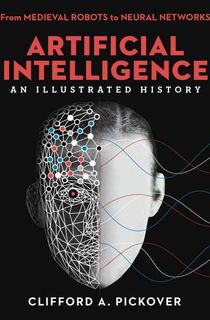
Artificial Intelligence
In a time when artificial intelligence is becoming more prevalent than ever, this book is a particularly crucial read. Award-winning author Clifford A. Pickover takes readers on an informative journey from medieval robots and Boolean mathematics to facial recognition, artificial neural networks, and more across 100 illustrated entries. Learn about the growth of AI across different fields such as medicine and popular culture, and what its presence means for the future of human-machine interactions.
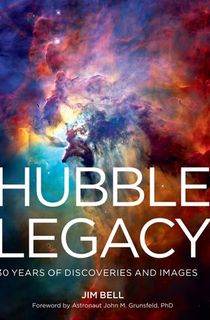
Hubble Legacy
Currently, the only known form of time travel comes from looking deep into space. When you’re looking at something like a star with your naked eye, what you’re seeing is actually the light waves emitted by that star roughly 4,000 years ago, so imagine how far you can look back with something as powerful as a telescope—especially one like the Hubble Space Telescope, one of the most powerful telescopes in the world.
The Hubble Space Telescope can look back at stars, planets, galaxies, and nebulae that are millions, if not billions, of years old; it is thanks to observations made with Hubble that we know the universe is about 13.8 billion years old. In this definitive book, learn about Hubble’s many contributions to astronomical knowledge alongside stunning photographs of our universe.
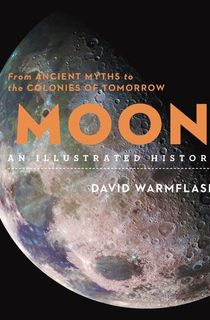
Moon
Take a comprehensive look at the history of the moon and how studying it can help future research in this colorfully illustrated chronicle of 100 milestones in lunar history. Written by astrobiologist David Warmflash, this book explores important breakthroughs such as the ancient Greeks’ discovery of why the moon waxes and wanes, how the moon helped prove Albert Einstein’s general relativity theory, and the successful Apollo 11 landing that paved the way for future scientific missions. Check out Moon to understand more about lunar geology and its important relationship to humankind.

The Biology Book
Biology is the most widely-studied scientific field of all. Understanding more about where we came from and how humanity originated helps us to discover more about how our species may evolve. The Biology Book covers 250 landmarks in biology, from the first emergence of life to genetic engineering. Brief, clear, and brilliantly illustrated sections keep readers engaged as they learn about the major subdisciplines of biology—like cell theory, genetics, ecology, and molecular biology—to then understand the practical applications to interesting topics such as fingerprints, pheromones, DNA technology, and more.
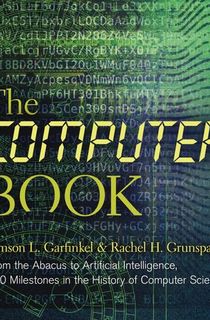
The Computer Book
Join expert authors Simson L. Garfinkel and Rachel H. Grunspan, who each have decades of experience in computer research and innovation, on a chronological journey across 250 milestones in computer science. Start with the ancient Sumerian abacus, and go on to discover the history behind video games, hacking, virtual reality, and more. The Computer Book is a “fast trip through the computing landscape in the company of friendly tour guides who know the history” (Harry Lewis, Gordon McKay professor of Computer Science, Harvard University).
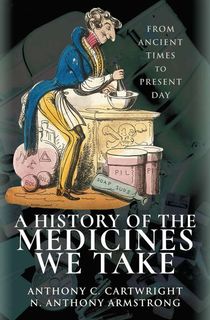
A History of the Medicines We Take
Stretching back to early medicine and journeying through the fascinating development of modern poultices, pills, and prescriptions over the centuries, the authors blend this historical collection of facts with pharmaceutical application. From retellings of herbal traces in Neanderthal remains and Mesopotamian prescriptions on clay tablets, to today’s biotechnological antibody developments, this wealth of information challenges readers to understand many of the modern remedies we take for granted. Separated into two parts and exquisitely detailed, Cartwright and Armstrong tackle the history of medicine by referring to archival sources, both primary and secondary.
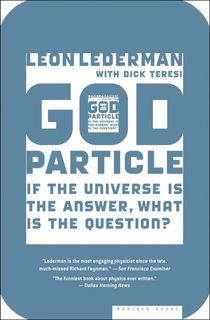
God Particle
Written by Nobel Prize-winning physicist and former Fermilab director Leon Lederman and science writer Dick Teresi, God Particle journeys through an engrossing historical survey, covering everything from the Greeks’ earliest scientific observations to Einstein’s Theory of Relativity. The resulting book commemorates the human history of curiosity-driven discovery and innovation to the final and little-understood field of particle physics.
Celebrated big names ranging from Isaac Newton to Michael Faraday are chronicled to assist in answering the most challenging, even inconceivable questions the universe offers. This witty book concludes with the recent scientific search for the Higgs boson, or God particle, which scientists have theorized will contribute to uncovering the last secrets of the universe.
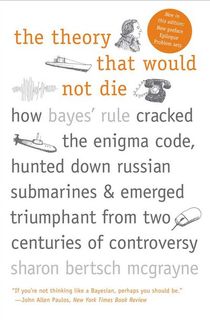
The Theory That Would Not Die
This mind-blowing work centers on Bayes’ theorem, named after amateur mathematician and 18th-century Presbyterian minister Thomas Bayes. The Theory That Would Not Die gives a chronological telling of Bayes’ theorem from its origins into its evolving modern form as a way to predict the probability that an event will occur. The book gives a thrilling and detailed description of groundbreaking figures such as Alan Turing, who used Bayes' theorem to break the German U-boats’ Enigma code during the Second World War as well as in search and rescue operations. While entrenched in professional taboo for decades due to its perceived subjectivity, Bayes’ theorem is widely utilized today.

A People's History of Science
Some might say that the field of science can be owed to a small crowd of incredible thinkers pushing against the unassuming masses. A fitting addition to the subject of “people’s histories,” A People’s History of Science directly challenges this postulation by presenting how ordinary people throughout history contributed to scientific breakthroughs. For example, marvelous structures such as skyscrapers were sprung forth by the work of the masses, particularly through the experiments and practices of artisans and miners among other working-class occupations. While their names are not recorded, the achievements of a scientific society exist only with the solid foundation built by the general public.
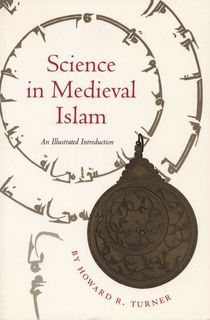
Science in Medieval Islam
The author presents a significant historical overview of the spread of Islamic civilization, beginning from its birthplace in the Arabian Peninsula and stretching eastward to India and westward across northern Africa into Spain at the height of its glory. In the Golden Age of Islam, empire-building was spawned by both rapid expansion and desire for knowledge, absorbing the scientific knowledge of ancient cultures such as Greece, India, and China.
This book delves into a millennium’s worth of Muslim artists, laborers, philosophers, poets, princes, and scientists whose contributions influenced societies around the world. Islamic accomplishments ranging from astronomy to geography to medicine have influenced the West. Readers will be entrenched in an illuminating commentary of what inspired the early scientific efforts of the Islamic world, what contributed to its decline, and how it remains ignited in some ways.
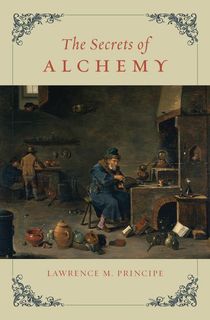
The Secrets of Alchemy
Recognized as one of the world’s leading experts on the history of alchemy, Principe sheds light on a rather obscure topic by assembling fractured documents and reticent clues over time to uncover alchemy’s secrets. Carefully surveying the roots of the field, the book explores alchemy’s place in the cosmos and humankind’s artistic accomplishments. Besides presenting a thorough explanation of both its rational and religious basis, the author addresses the misconceptions that have long surrounded the mystic subject to create a better understanding of its important position in human civilization as well as a recent area of serious study by historians of science.

A Cultural History of Heredity
In this outstanding work, Muller-Wille and Rheinberger revisit turn-of-the-century debates to assemble a well-researched and intelligible history of heredity, which altered a range of cultural domains from politics and law to procreation and anthropology. A late bloomer in life sciences, the pace of development in the field of heredity and eventually molecular biology and gene technology enlightens students and general audiences on the direction of a momentously significant and influential science. Its crucial transformation lay in understanding hereditary as each living organism possessing uniquely linked inheritance and lineage from parent to offspring and the medical breakthroughs that came as a result.

The Making of the Atomic Bomb
Combined with gripping testimony and the rapid chronology of the most destructive man-made weapons of warfare, this Pulitzer Prize-winning nonfiction book reveals to readers how such a world-changing force arrived at its final and deadliest stage. Covering such vastly recognizable events as the Second World War, competition with Nazi Germany that launched the Manhattan Project, the “Trinity” test at Alamogordo, New Mexico, and the first pivotal, devastating attacks on Hiroshima and Nagasaki, this work of outstanding research is an instructive bookshelf addition.
Considered a general authority on early nuclear weapons history in the first half of the 20th century, the author provides comprehensive overviews of foundational, preeminent, even Nobel Prize-winning scientists like Marie Curie, Albert Einstein, Edward Teller, and J. Robert Oppenheimer, among others. Rhodes’ work reads like a heart-stopping novel, overlapping human, political, and scientific elements to demonstrate the drastic evolution of nuclear-armed global power in less than a century’s time.

Horizons: The Global Origins of Modern Science
When conjuring visuals of modern science, brilliant figures such as Isaac Newton or Albert Einstein immediately come to mind. However, as this most excellent read will demonstrate, the evolution of modern science has been an inter-civilizational endeavor throughout the course of human history. Going outside the already fascinating and familiar scientific revolutions of Copernicus and Galileo, who depended on mathematical techniques from Arabic and Persian texts, the horizon of science is expanded to incorporate an international exchange in world cultures even under exploitative circumstances.
Many significant scientific breakthroughs were formed out of this exchange of vital contributions by scientists outside of Europe to develop our current understanding of the world. Divided into four chronological sections, the modern advancement of science is highlighted in the recent global collaboration in space exploration, climate change, and the rise of artificial intelligence.

The Story of Western Science: From the Writings of Aristotle to the Big Bang Theory
Engaging and enlightening, The Story of Western Science presents a chronological, concise overview of the grand evolution of scientific ideas and the bright minds that brought them to the forefront. While journalists and politicians can far too often lead the public discussion of science, this book independently guides readers back to the delight and appreciation for historical works of genius that revolutionized our perception of the world around us and the universe beyond it before understanding ourselves. All chapters are a testimonial celebration of human curiosity and endeavor in the form of history’s most memorable, even complicated figures.
This post is sponsored by Open Road Media. Thank you for supporting our partners, who make it possible for The Archive to continue publishing the history stories you love.




